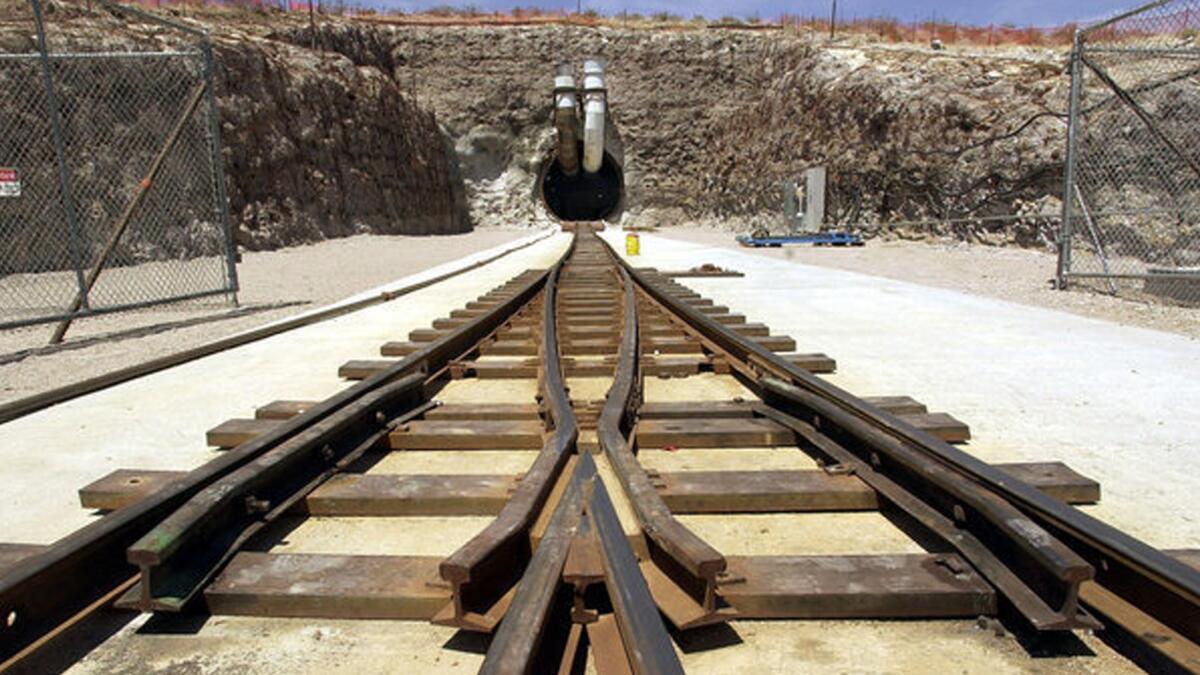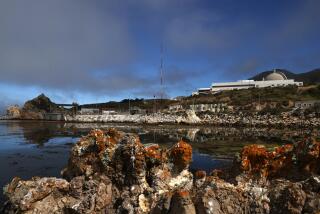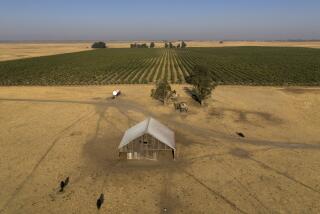Will San Onofre’s nuclear waste wind up at Yucca Mountain?

The south portal tunnel entrance of Yucca Mountain, the planned site of a national nuclear waste dump near Mercury, Nev.
Yucca Mountain is back on the bargaining table on Capitol Hill.
And if the nuclear waste repository in Nevada gets back on track — and that’s a big “if,” considering the controversial site has been debated for going on 40 years and six presidential administrations — it could provide a destination for the 3.6 million pounds of nuclear waste now beached at the San Onofre Nuclear Generating Station.
“There will almost certainly be efforts to reintroduce legislation that would restart the Yucca process,” said David Victor, chairman of the Community Engagement Panel, which acts as a liaison between the public and the operators at San Onofre.
“What’s interesting is this is not a normal left-right [political] issue.”
Located about 100 miles northwest of Las Vegas, Yucca Mountain at one time was determined to be the best site to deposit the nation’s nuclear waste, which has now reached more than 70,000 metric tons at some 120 sites across the country.
The site was slated to open in 2017. But Sen. Harry Reid ( D-Nevada) who loathed the idea of storing waste in his home state, became the Senate Majority Leader after the 2006 elections.
During the 2008 presidential campaign, then-candidate Barack Obama said Yucca Mountain was “an expensive failure and should be abandoned.” The Obama administration cut off funding for Yucca Mountain in 2010.
The January retirement of Reid from the Senate and the arrival of the administration of President-elect Donald Trump has led to speculation that Yucca Mountain — which has already cost taxpayers $9 billion to $15 billion — could be revived and re-funded.
Trump has not taken a position on Yucca Mountain, but last month during a campaign stop in Nevada, he said he was “going to take a look at it.”
A report from Bloomberg News last week cited two unidentified people familiar with Trump’s transition planning who said reopening Yucca Mountain is “being actively discussed by advisors.”
Rep. John Shimkus (R-Illinois), considered to be in line to become chairman of the House Energy and Commerce Committee, has long maintained that Yucca Mountain represents “the fastest, best and most viable solution” for storing waste.
Should the Yucca Mountain debate return to the halls of Congress, Victor said its best chance for survival would come if it is combined with another potential nuclear waste solution: consolidated interim storage.
Under consolidated storage, sites would be built in isolated locations like the desert where multiple plants could deposit their waste.
Democrats and Republicans — many of them anxious to get waste shipped out of their home states — have introduced legislation to help clear the way for consolidated storage.
One site in West Texas and another in eastern New Mexico have been mentioned as potential destinations for San Onofre’s waste and could open as early as the 2020s — a short time period by nuclear waste timetables — if they can clear a series of daunting political and regulatory hurdles.
“I think you can get a bigger coalition by linking Yucca to consolidated storage,” said Victor, who is also a professor of international relations at UC San Diego.
Sen. Dianne Feinstein (D-California) echoed those remarks last week.
“We have tried year after year to get a pilot waste” program, Feinstein said at a Senate subcommittee hearing. “We know there are people who want to build it, a waste facility, because even if Yucca went ahead, Yucca would be filled.”
Feinstein has co-sponsored nuclear waste legislation with two Republicans and another Senate Democrat.
Rep. Darrell Issa (R-Vista), also has co-sponsored a bill to find alternative sites for nuclear waste. The San Onofre nuclear plant is in Issa’s congressional district.
“Obviously we would love it if we had a permanent site, especially one that had so much time and money spent on it,” Issa said.
“But if Congress reopens the question, we shouldn’t open it with a prejudice that it must be good. And we shouldn’t allow the prejudice that Harry Reid always had that it must be bad. The in-between is putting together the proper balance of pros and cons and have it fairly and scientifically reevaluated.”
The issue is of particular importance to California, where more than 3,000 tons of spent nuclear fuel is stranded.
Victor was quick to point out that efforts to reach a political solution on Yucca Mountain could end up on the back burner as other policies promoted by the Republican-controlled House of Representatives and Senate take center stage.
“There are going to be other things that are going to be much higher on their list — Obamacare, for one,” Victor said. “Those are going to be very complicated issues that could really suck the oxygen out of the legislative process.”
And Victor noted that even if a deal on nuclear waste is reached on Capitol Hill, there is still a regulatory process that has to be navigated.
“Congress can’t legislate Yucca to open,” Victor said. “Congress can restart the process of Yucca going through all the regulatory approvals, which it is nearly done with, but not completely. That does not insulate Yucca from all sorts of local problems and possible changes in administrations in the future.”
More to Read
Inside the business of entertainment
The Wide Shot brings you news, analysis and insights on everything from streaming wars to production — and what it all means for the future.
You may occasionally receive promotional content from the Los Angeles Times.









